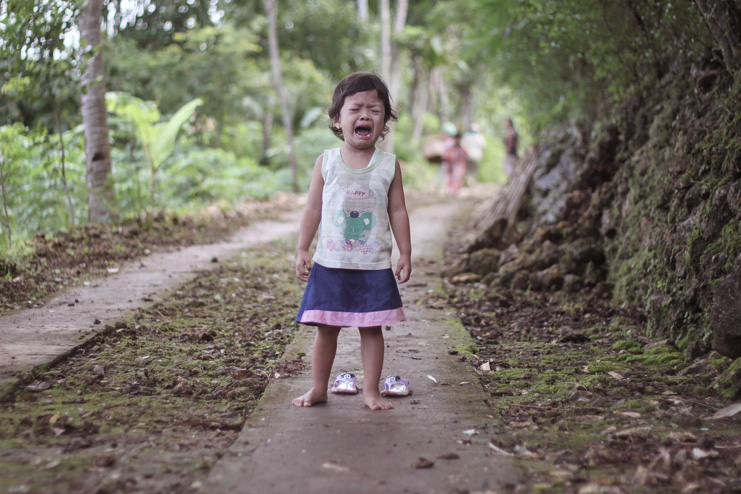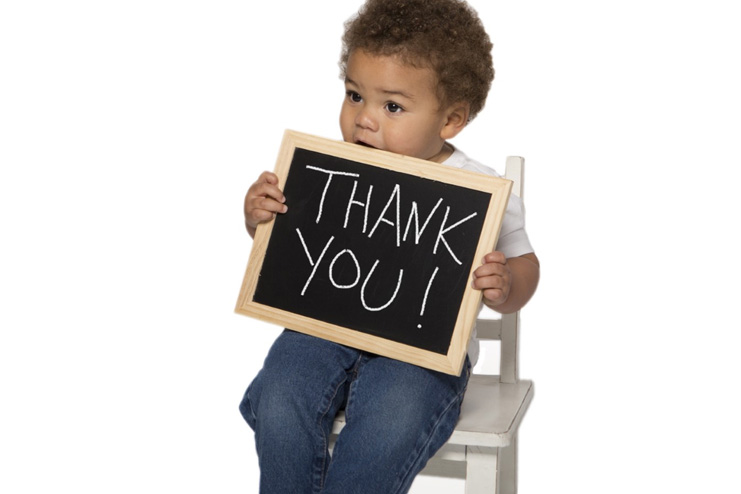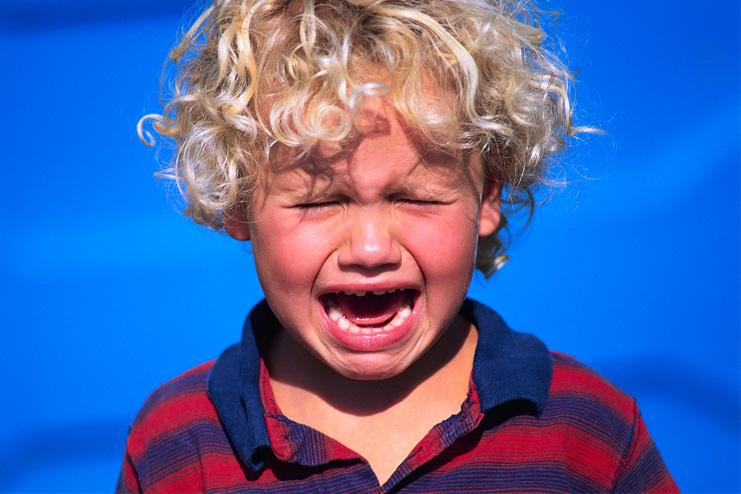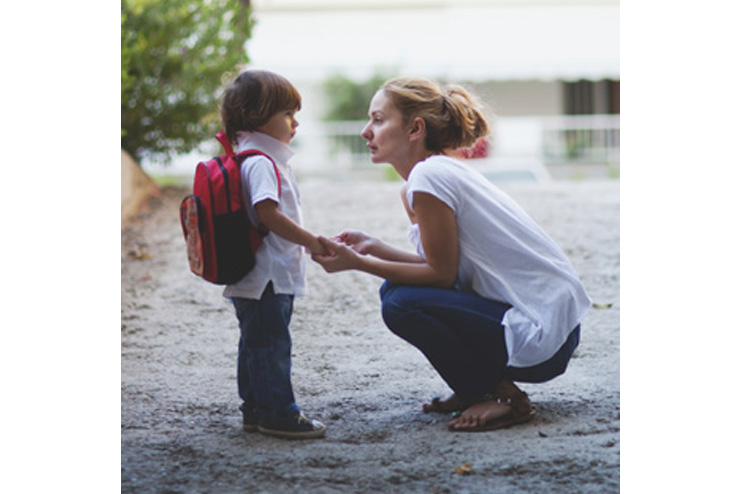Does your child cry frequently over the little things? What are the phrases to use to make your kid stop crying? You can clear all your questions by the end of this article.
It’s common for young children often cry instead of expressing in words what they want or need. Most of the kids feel that crying is the greatest weapon to get their wishes done. There are some soothing things that you could say to your child instead of stop crying.
This article discusses the things that make kids to cry. It presents the phrases to say to your child instead of stop crying.
Why Do Children Cry?
 All babies cry when they are tired, uncomfortable, and hungry. Sometimes, children cry when they are in need of affection. Toddlers and younger children cry when they are hurt, angry, or frustrated. There are many other reasons which make young children cry. Here are the few:
All babies cry when they are tired, uncomfortable, and hungry. Sometimes, children cry when they are in need of affection. Toddlers and younger children cry when they are hurt, angry, or frustrated. There are many other reasons which make young children cry. Here are the few:
1. Being Sensitive:
Being at the sensitive end of the spectrum makes some children more prone to crying than others. Such kind of kids feels the emotions so deeply.
2. Injury:
Kids often cry to express their pain when they fell off while playing in the school or at the backyard.
3. When they are Yelled At:
Kids cry when they are yelled by parents, caregivers. Sometimes fight between the siblings also make them to cry.
3. Situations are out of their expectations:
Some children cry when they did not get what they want or need. Children also cry if they did not get the things as per their taste. For example, any presents given to them is of different color which they do not like.
Teach Your Kid Manners:

Most of the kids cry in public spaces like- roads, supermarkets, toy stores, etc., if this behavior turns frequent it is time to teach them good manners. Here are the few ways to teach your child good manners:
1. Model Manners: In order to teach good manners to your kid, you should do it as well. Kids learn most of the habits of adults.
2. Practice at Home: The things that learned out of practice stays for longer times. Make your kid to practice good behavior at home.
Practice them good manners like Knocking the closed door, seeking permission before interrupting, not to comment on their peers.
3. Teach them Polite Words: Teach them some of the polite words like- Excuse me, Sorry, Thank you which are helpful in social settings.
4. Correct Your Child on the Spot: Whenever your kid comes across any kind of misbehavior correct it on the spot. For example, if your kid interrupts you without any permission while you are talking to your friend, pardon your friend for the inconvenience and correct your child at that moment saying that he is wrong.
If your kid is over sensitive, speak to them privately.
5. Be Patient: It is true that most of the children are self-centered by nature. They often do not listen or give respect to others. Teach them the importance of being humble towards others.
6. Teach table Manners: Teach your child the table manners like cleaning hands and face before coming to the table, putting a napkin on the lap, etc.
What To Avoid While Your Child Is Crying:

As a parent, you deal with the emotions of your child on a daily basis. Childhood is an innocent phase filled with fun and joy. Kids often cry over many things, as a parent, it’s heart breaking to see your child crying and sometimes you may also burst out of anger and yell at your kid saying “Stop Crying!”.
The parental role is so tricky as it involves supporting your little one’s development of emotional self-regulation.
Here are the few things to avoid while your child is crying.
1. Don’t Distract:
Most of the parents think distraction is the best tool to stop a kid from crying. Even though distraction works to stop crying. It misses the opportunity to connect with your kid and teach them how to deal with the emotions.
Distraction is temporary it does not help your child to deal with the similar situations that arise in the future.
2. Don’t Punish:
Punishment is not a part of good parenting. Never punish, blame, insult, or judge a child for their feelings.
3. Never say “Get Out”:
Never say your child get out or go away when they are crying. It makes them feel abandoned and a child may run out of the home if they feel it worse.
4. Don’t Ask Many Questions?
Children look for care and support. Asking many questions makes them feel you as intrusive, not supportive. If you want to be supportive of them, never ask many questions.
5. Don’t Compare:
Don’t compare your kid with the other kids saying that “Your friends wouldn’t have cried”. It lowers the self-esteem in your kid and increases the distance from you.
6. Don’t Fix the Things:
Don’t fix your crying child, instead, you should try top soothe them. For example, If your kid is crying for ice cream, don’t say- “ I know you want ice cream, let’s go to the shop” Say “ I Know you want ice cream, but it is not good for health”.
If you fix it, they will treat crying as a way to get the things they need.
The best thing to do when a child is crying:
1. Show Empathy:
Empathy works well as it makes your child feel that your support is available to them at times of distress.
Sometimes children come across situations where they cannot understand the reason behind their feelings. Sitting beside your child and listening to them at those situations offer your child confidence that you are there as a guardian.
What To Say Your Child Instead of Stop Crying:

Saying “Don’t Cry” or “Stop Crying” to your crying kid makes them feel that you don’t understand their feelings or concerns. These phrases give your child a message that their feelings are not important or invalid. Learn the few things to say to a child instead of stop crying.
While dealing with the crying child, take a moment to make sure you are calm. The things that you say to your child out of anger will add more to their distress.
When your anger is completely under your control try saying these phrases. Here are the few soothing things to say to a child instead of stop crying.
20 Phrases to Say Instead of Stop Crying:
1. “We are on The Same Team. I will Help You”
This is a friendly way of soothing your child. It shows them that you are there to support them.
2. “ I see that you are upset .. But.”
If your child cries for the candy bar which they saw at the grocery store. Don’t simply say stop crying. Instead, use the following phrase- “ I see that you are upset nut the candies are not good for health”
3. Say It’s Okay to Cry:
Saying it’s okay mean that everything is fine. That means you are trying to reassure that everything is fine even though they don’t feel fine. It may result in minimizing their feeling.
Instead of saying “It’s Okay”, “Its Okay to Cry” is a better option.
4. “Why don’t we go out for a break and have some fun?”
If your child is crying, because he is unable to do something he tried. Then, using this phrase is the best way to refresh your kid.
5. “I’m Here With You”
Using this phrase gives your child assurance that you are there with them to help out.
6. “ It doesn’t Feel Fair”
Try to look at the situation from your child’s point of view. Explain the situation that you feel unfair to your kid in a smooth manner.
7. “ I Can Help You”
When your child is in the middle of the meltdown or they stuck while doing the things and can not drive them to the destination, they may feel distressed and start throwing their toys. In those situations, the phrase “ I can Help You” brings them out from the stress.
8. “You are So Frustrated! It’s Okay, I’m Here For You”
When your kid comes across a tough day with overwhelms that cause them to break down. Assure your kid with this friendly phrase. One more phrase that you can use if your child has come across the bad day is – “ Do you mind if I sit next to you? How is your day?”
9. “Want to give it a go one more time?”
If your child fell off the bicycle or do not play the game as they wish. This statement tells them that it is alright to fail few times before they succeed.
10. “There is nothing more important than being with you right now”
This phrase makes your kid to understand that you are their first preference. Use this phrase at times when they are alone. Another phrases that you can use are “I’m not going anywhere”, “I’ll be with you while you are upset”, “Always remember, I love you”.
11. “Tell Me about It, I’m Listening”
Everyone wants to be heard, especially kids. If you notice that your kid is crying about a situation that had happened, let them tell you about it. This makes them feel relaxed and provides assurance that you are there to support them.
12. “ Would You Like To Play With Me”
If your child has a tough time making friends and play with them. It’s the right time for you to step in. Play with your kid and wipe away the tears.
13. “That was really scary! I’m right here”
Little ones not only cry when they are tired or overwhelmed but also over the situations that frighten them.
It’s your turn to acknowledge how they are feeling and let them know that you are there to support them.
14. “ There was this time I cried because….”
May be you have a story in the childhood that you cried because you are bullied or due to some other situations. Narrate them your story and explain how you cried. This strengthens the friendly bond between you and your kid.
15. “I’m going to take some deep breaths”:
Children copy most of the things from adults. Tell them the calm down strategy that you use to get out of the distress and anger and make them try this. This makes the kids understand that even adults need some practice to calm down sometimes.
16. “Relax, You’ll figure it out”
If your kid is a genius, he may tumble sometimes in the way of learning. Use this friendly phrase to build confidence in your child.
17. “You are absolutely safe with Mommy and Daddy”
Kids sometimes cry when they are bullied or feel unsafe. Assure them that you are there as parents to protect and support them.
18. “It’s okay to feel this way”
If your child has done something wrong or hurts his/her friend, they may cry out of the guilt. Soothe your kid with this phrase.
19. “That was disappointing”
When something disappointing happens to your child, saying “stop crying” signals them that their feelings are ignored.
20. “I’ll help you work it out”
Things may not go as planned for your kid, which leads to frustration and anger. If you see your child struggling to complete the task, use this friendly phrase, and offer help. They will stop crying, once they complete the task with your help.
Children cry less when they grow, develop, and understand. When your child cries, start by checking that he isn’t sick or hurt. If you notice that your child is crying for another reason, the 20 phrases mentioned in the article to say to a child instead of stop crying work well to soothe your child.










































